Digital Scanner Guide: Scan your way to new opportunities
With today’s digital impression technologies, you can easily find yourself getting involved in an efficient digital dental workflow.
With today’s digital impression technologies, you can easily find yourself getting involved in an efficient digital dental workflow.
Just a few years ago, digital impression technology seemed a little more like something out of Star Wars than something a lot of clinicians might use to deliver speedy, accurate data on their way to better restorative dentistry.
But times have changed.
Today more manufacturers, clinicians and laboratories are taking advantage of the technology. No matter where you are in the process of going all-out digital, you can bring beautifully crafted, digitally designed restorations to your patients.
With more digital impression systems available, including some significant price drops, the time may be right for you to get more involved in the intraoral scanning process. From there you may choose to take on designing and the actual fabrication of digital crowns and more, or you may choose to work with partners and laboratories for a portion of this digital workflow.
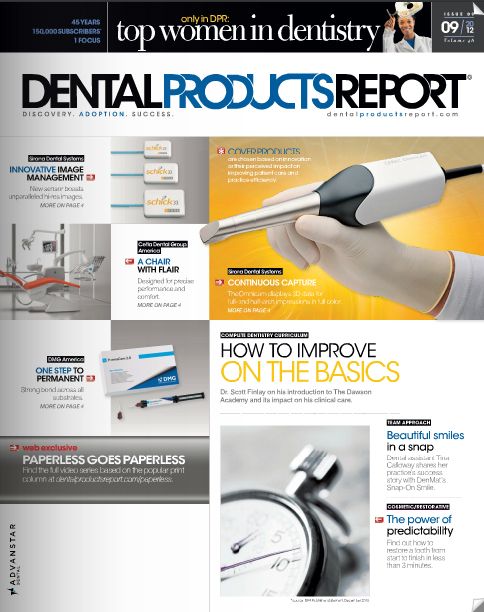
One example of just how big this category has gotten took place last fall when the covers of Dental Products Report featured exciting launches in three consecutive months. The September 2012 cover featured the CEREC Omnicam from Sirona Dental Systems, and was followed by the 3M™ True Definition Scanner in October and then the 3Shape TRIOS® 3D scanner in November.
In 2013 Carestream Dental joined the field with the launch of the CS 3500 intraoral scanner. Along with established popular brands like Align’s iTero, D4D Technologies’ E4D Dentist System and IOS Technologies’ IOS FastScan and TS150, clinicians ready to take on digital impressioning have plenty of good options. On the following pages you’ll learn more about these options, as well as how the technology is working for some clinicians and how it can fit into the overall digital dental workflow picture.
Lee Culp, CDT, who has been involved in digital impression technology and CAD/CAM workflows for both clinicians and laboratories for years, has noticed growth in these areas and expects to see more some time down the road.
“It’s a wonderful technology,” said Culp, the CTO for Microdental Laboratories. “It’s certainly catching on, we’re not seeing phenomenal growth in these systems just yet. There may be a time soon where something happens and there’s this tipping point, but I don’t see it in the next couple of years.”
Eventually, most clinicians will use digital intraoral scanners and traditional impression material techniques will become rare, Culp said, but this won’t happen overnight.
“Yes (it will become the method of choice for most clinicians someday). With this technology the options are there to do anything we want to do. I’m sure as the adoption rate of the technology goes up we’ll see a lot of these secondary options to manufacture restorations gain a little more promise.
Right now either the doctor does the milling chairside with either CEREC or E4D or he sends it to the lab and we do it. But I expect we’ll see a lot more options available down the road.”
For now, those who do add the scanners to their practice but don’t yet make the full digital jump to chairside fabrication- will find the transition a smooth one.
“Basically you are switching from one impression technology to a different one and everything else stays the same. It goes to the lab and you get a tooth back,” he said.
3Shape TRIOS®
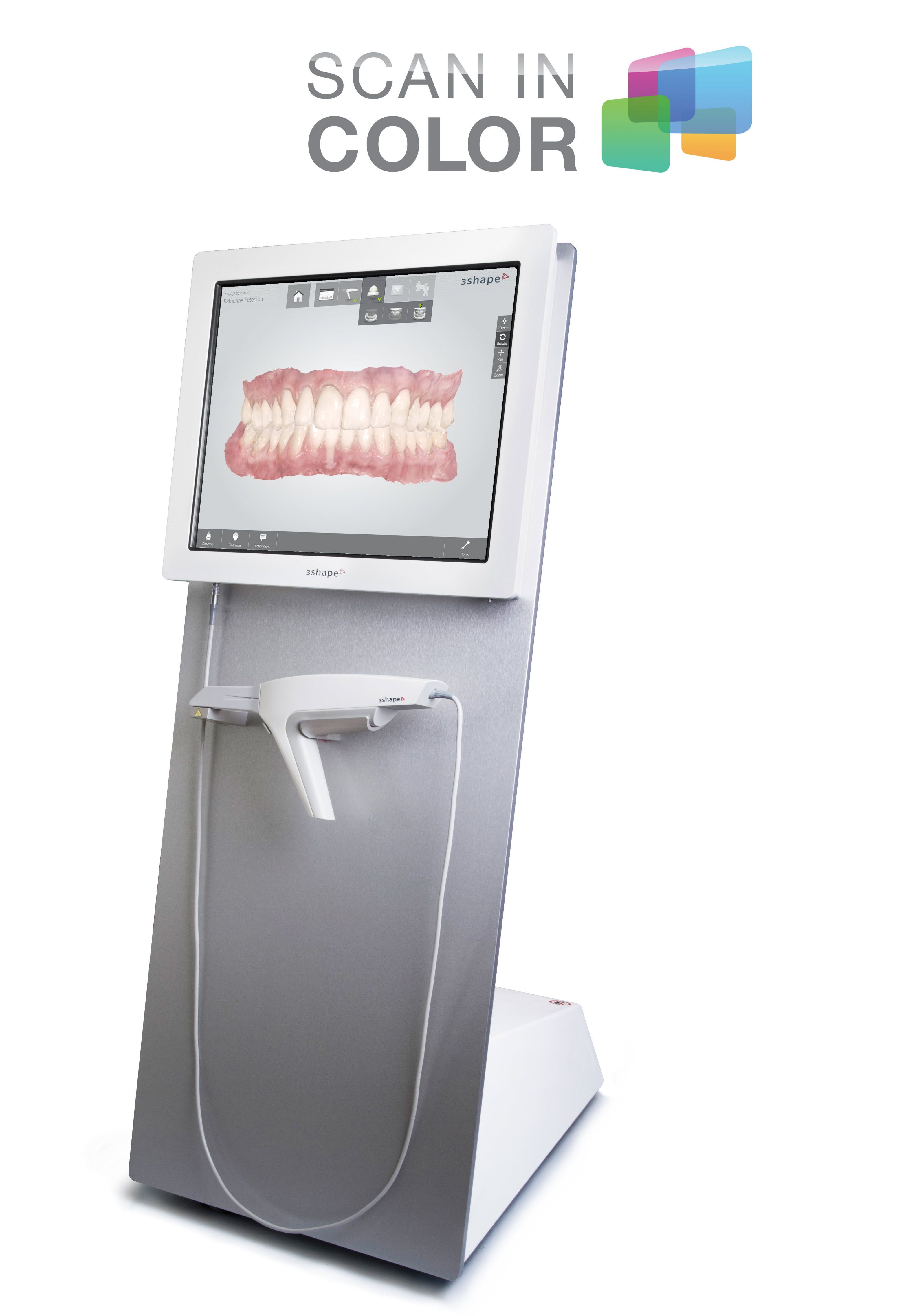
Featuring Ultrafast Optical Sectioning technology, TRIOS® uses up to 1,000 3D pictures to create geometries based on real data. The scanner captures more than 3,000 2D images per second and does not require dentists to apply spray to coat the patient’s teeth, making scanning fast, accurate and comfortable for patients. Dentists can preview 3D lab designs on the TRIOS screen, evaluate and agree on margin lines, access virtual diagnostic wax-ups and generally discuss cases with labs and patients when convenient.
3Shape
908-867-0144 • 3shapedental.com
IOS FastScan® and TS150™
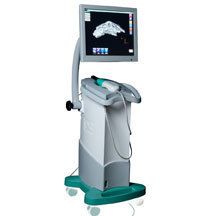
The IOS FastDesign™ system offers clinicians a simple, convenient and affordable solution for same-day dentistry. The FastScan® digital impression unit features laser line scanning technology, whereby the probe remains stationary in the mouth. The TS150™ in-office mill features a fast 150,000 rpm spindle for precision milling, and an orbital milling strategy for excellent marginal integrity of the final restoration.
IOS Technologies Inc.
858-202-3360
ios3d.com
iTero® Imaging System
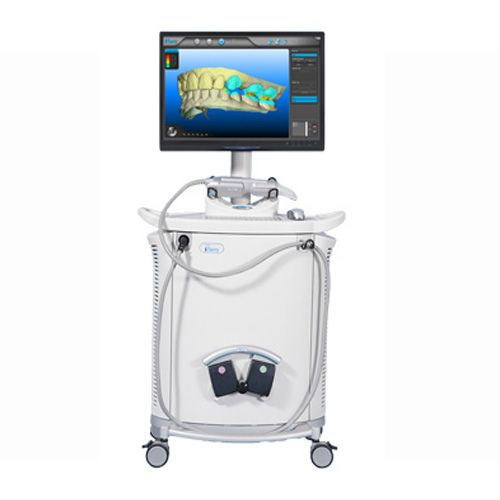
The iTero® imaging system is now available as a single hardware platform with software options for restorative and orthodontic procedures. The improved device has advanced optics and enhanced algorithms that are said to substantially increase the speed of capture to reduce overall scanning time. The new scanning wand and fiberoptic cord are light and ergonomic.
Additionally, full color model rendering is available that enables clinicians to show patients a life-like final model of their scanned dentition.
Align Technology Inc.
408-470-1000 • aligntech.com
CEREC® Omnicam
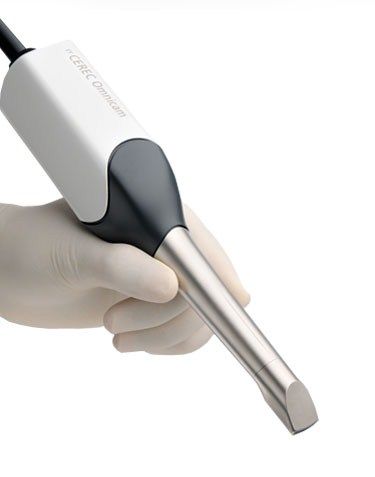
CEREC® Omnicam’s advanced design features a completely new, ergonomic handpiece and special optics to guarantee unsurpassed intraoral access. New ColorStreaming allows continuous capture of the oral cavity as well as displaying the 3D data in full color. Operator convenience has been greatly improved by making the system completely powder-free while retaining Sirona’s high standards for precision.
The CEREC Omnicam also records 2D and 3D data, captures half-arch and full-arch impressions with industry-leading speed and provides a uniform field of illumination for increased precision.
Sirona Dental Systems Inc.
800-659-5977 • cereconline.com
Dr. Mike DiTolla takes a peak into the future of this technology
I took my first digital impression in the summer of 2007. Struggling with this first, somewhat “user-unfriendly” system, I found it hard to believe that this was going to be the future of dental impressions. Companies proclaimed that within five years every dentist would be taking impressions this way.
Things rarely change that fast in dentistry. It would be two more years before I would notice the biggest, unadvertised benefit of digital impressions: I was becoming a better dentist.
All U.S. states require dentists to complete a certain amount of continuing education each year to renew our dental licenses. The message is clear: Sharpen your skills and we will let you continue to practice.
My first major improvement was implementing loupes. Buying them was easy, but actually wearing them for the first two weeks was hard. But we adapt, and now I won’t treat a patient without them. Now imagine loupes on steroids, with 20 to 40 times the magnification. You can’t wear loupes that powerful or they would be the size of the Hubble telescope. Yet that’s what digital impressions do.
They show you a world you haven’t seen before. I was shocked the first time I saw my ragged crown margins after finishing my prep with a coarse bur instead of a fine one.
Today, instead of staring at the intaglio surface of a silicone impression, I see an enormous virtual model of my prep on the screen - warts and all.
And I get to change my prep to remove the warts. My eyes now see things on the actual preps they never saw before. Suddenly, I have become a better dentist AND am saving 20 percent on my lab bill because the lab doesn’t have to make a model. I doubt every dentist will be taking digital impressions in five years, but I’m certain the majority of those who strive to be better dentists most certainly will.
ACTIVA BioACTIVE Bulk Flow Marks Pulpdent’s First Major Product Release in 4 Years
December 12th 2024Next-generation bulk-fill dental restorative raises the standard of care for bulk-fill procedures by providing natural remineralization support, while also overcoming current bulk-fill limitations.